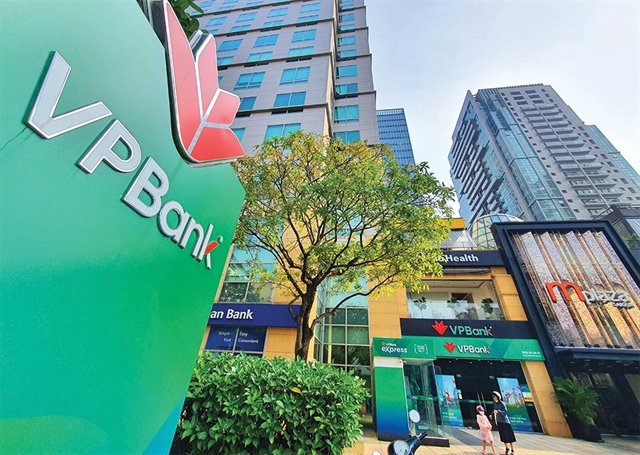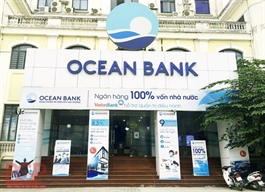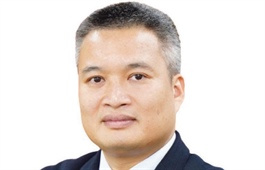Ownership of financial groups comes to fore
Ownership of financial groups comes to fore
The formation of financial business groups with banks at the core is set to dominate, but complex cross-ownership and capital being diverted to so-called backyard companies is still causing a headache for state authorities.

Ownership of financial groups comes to fore, Photo: Le Toan |
At a conference in Vietnam at the start of December, experts emphasised that if financial business groups develop unsustainably, the economy will not develop well.
Amid new regulations of the Law on Credit Institutions 2024, which took effect in July, most banks have announced the share ownership ratio of individuals, organisations, and related persons. The trouble of exceeding the bank ownership ratio ceiling in many banks has been unveiled.
Economist Le Xuan Nghia said, “With the current regulations, the maximum ownership ratio of individuals was 15 per cent, and that of organisations 20 per cent, but many are still circumventing the law by asking relatives or employees to stand in their names. This creates a complex ecosystem of cross-ownership, causing big challenges in management.”
Lawyer Nguyen Thanh Ha, chairman of SBLaw, said that circumventing the law through backyard companies, meaning those set up by family or friend to hold assets or gain an unfair advantage, was a big challenge. “It is necessary to investigate the cash flow of people with large sums of money invested in banks. Otherwise, this situation will continue to destabilise the financial market,” he said.
Nguyen Tri Hieu, a finance and banking expert, suggested that Vietnam should have a law on financial group management. In the US, banks belonging to financial groups are regulated under the Bank Holding Act and inspected by the US Federal Reserve. “The act has strict regulations on the operations of financial groups and their subsidiaries, especially transfer pricing regulations to prevent subsidiaries from lending to each other at preferential interest rates, and easy conditions, leading to crisis risks,” Hieu said.
Previously, commercial banks doing business in a niche market segment such as retail banking could still develop. However, over the past 2-3 years, the strongest credit institutions in Vietnam are growing towards the financial group model, including VPBank, HDBank, and MB.
Pham Xuan Hoe, vice chairman and general secretary of the Vietnam Financial Leasing Association (VFLA), said that the total capital assets of 11 large financial groups in Vietnam are nearly VND14 quadrillion ($571 billion), accounting for about two-thirds of the entire financial group system. Outstanding loans are $404 billion, accounting for two-thirds of the economy’s outstanding credit.
“The ecosystem of a financial group including state capital is simpler, in the financial sector only, while the ecosystem of a private-owned financial group has a more complex structure, with many subsidiaries operating in non-financial activities, including real estate,” he said.
The advantage of this model is that subsidiaries can utilise the resources, reputation, and brand of the parent company to reduce costs, improve management, provide comprehensive services, and enhance competitiveness.
However, the disadvantages of this model are complex cross-ownership, which is difficult to control, but easy to transfer to backyard companies, the risk spreading the entire system, circumventing the law, and not being transparent.
Last month, Governor of the State Bank of Vietnam Nguyen Thi Hong said that the issue of ownership exceeding the prescribed limit was still difficult in cases where major shareholders and related persons deliberately conceal or ask other individuals/organisations to stand in their names to register owned shares. So credit institutions may be controlled by these shareholders, and face the risk of operating without transparency and openness.
The Law on Credit Institutions 2024 has added regulations to prevent cross-investment, cross-ownership, and ownership with a manipulative and dominating nature in credit institutions.
The share ownership ratio for institutional shareholders reduced from 15 to 10 per cent of charter capital, and for shareholders and related persons decreased from 20 to 15 per cent of charter capital. Credit institutions are required to publicly disclose information on shareholders and related persons with an ownership ratio of 1 per cent or more of charter capital.
However, experts wonder whether this law can really prevent cross-ownership and monopolisation or not. “Solving the problem of handling ownership exceeding the ceiling not only requires strictness in the legal framework but also self-awareness from banks and shareholders. Without drastic steps, the legal evasion and cross-ownership will continue to be a major bottleneck in the Vietnamese banking system,” said Hoe of the VFLA.




























